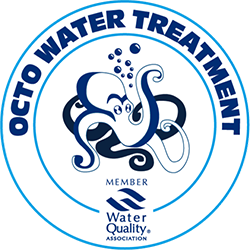Confronting the Global Plastic Crisis: From Peaks to Depths
Our world, from the Mariana Trench’s depths to Mount Everest’s summit, is now permeated with plastic. Microplastics’ global invasion raises a critical question: how can we effectively tackle the escalating issue of plastic pollution?

Recycling: A Partial Solution to the Plastic Problem
While recycling appears to be an effective way to mitigate landfill use and raw material consumption, it’s not a complete solution. Plastics, a diverse group of synthetic substances, find widespread use due to their resistance to water, heat, and acid. However, the hazardous chemicals in plastics, like Bisphenols found in various consumer products, pose significant environmental and health risks. These substances often leach into the soil and waterways from landfills, causing widespread damage.
Surprisingly, only about 9% of plastics get recycled. The vast majority end up in landfills, incinerators, or polluting the environment. During the recycling process, plastics can absorb harmful substances, and melting them down can create new toxic chemicals. This situation highlights the need for a more comprehensive approach to managing plastic waste.
However, the message here is not to abandon recycling altogether. It’s important to recognise that while some plastic waste is inevitable, recycling still plays a role in mitigating the plastic crisis. But, it’s crucial to have regulations ensuring that recycled plastics are used in low-risk applications. Collaboration among scientists, industry, governments, and consumers is essential to effectively tackle the plastic problem. Alongside this, everyone can contribute by adopting the three R’s: reduce, reuse, and recycle, with recycling being the last resort in handling plastic waste. Reducing consumption is the most effective step we can take.

Steering Towards An Eco-Friendly Industry
This ethos is increasingly being embraced in the yachting industry, as evident in recent shifts towards environmental consciousness. With initiatives like biofuels and carbon-offsetting, superyacht owners and crews are beginning to take sustainability seriously, paving the way for a more environmentally friendly future in marine travel
At Octo Marine, we couldn’t be happier about this change. Over the past 20 years, we have been working with the yachting industry to install state-of-the-art onboard water treatment systems. The installation of these systems allows superyachts to provide safe consumable water onboard for all their guests and crew, minimising the need for bottled water. Alongside our treatment systems, we also install water makers. Bringing desalination onboard allows superyachts to utilise the abundance of salt water, and turn it into safe drinkable water.
Additionally, our ‘Think Outside the Bottle Campaign’, an initiative to help break the yachting industry away from single-use plastic, is a testament to our dedication to reducing single-use plastics. We encourage crew members to switch to our bespoke reusable aluminium bottles, designed to withstand the rigors of marine life. These durable bottles not only reduce plastic usage but also protect users from harmful chemicals found in plastic bottles.

Spreading the Sustainable Message: Sustainability Partners
In an effort to spread our sustainability message far and wide, we recently became the sustainability sponsor for the MYBA charter show 2023, back in April. We set up drinking stations around the show to provide fresh accessible water for all in attendance. We offered a free Octo Marine reusable aluminium water bottle to all who came to our stations. With each station providing outstanding quality ambient, chilled, and sparkling water to ensure that everyone’s thirst was quenched.
If you’re interested in finding out more about Octo Marine can assist in your shift towards more sustainable yachting practices. With over three decades of experience in marine water treatment, we’re poised to deliver professional and seamless services.
Don’t forget to tag us on social media with any photos of your ‘Think Outside the Bottle’ reusable bottles! Our favourites may just get a repost and a shout-out from our social team.



